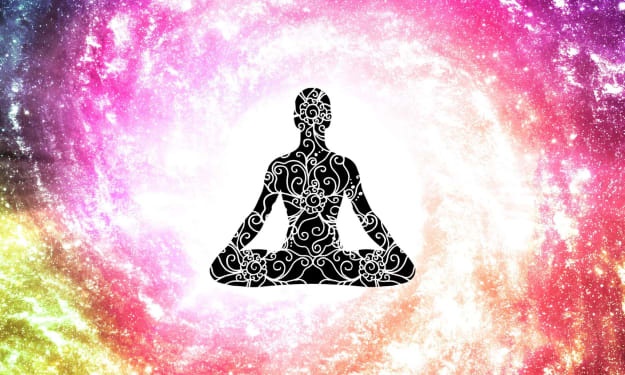Philosophical Innovation
The dire need to provoke new thinking.

Philosophical reasoning has been part of human society since the beginning of time. Why do we think the way we do? What triggers our actions, and why do we perceive the world the way we do?
One of the main things we need to establish is that there are two foundations humans use for moral guidance. It is either driven by religious beliefs or traditional teachings.
According to French philosopher René Descartes, it is far more important to gain worldly perception by traveling and experiencing life for oneself, than academically collected evidence. I happen to agree with this theory wholeheartedly. In my years on this planet, I have learned more about human interactions, emotional intelligence, and behavioral science by getting acquainted with different cultures and diverse traditions on a personal basis, than from any academic education I’ve obtained. Traveling and experiencing the life of someone else's daily routine has taught me a great deal more than any book I read or lesson I took throughout college. My Masters of Science Degree has never allowed me to dive into the mentality of someone who perceives life differently in a real-life scenario. Sure, theories are great, and I understand that scientific observations are essential to establish such theories, but walking in someone else's shoes (quite literally) offers far more value to the understanding of another person's perception of life than a mere theory.
While I believe that science is based on a philosophical foundation, some believe that a philosophical thought process can only be triggered by a scientific event.
It is my personal opinion that science is sparked by experiences, and thoughts are provoked by curiosity. For instance, I can be sitting in my room wondering about life, raising questions in regard to human existence without ever knowing about the human brain function. I do not need to know how the neurons in my head are sending information to different parts of my body to wonder what purpose I have on this earth.
Science, however, requires there to be a certain incident that raises a question in regard to the physical happening of, well, basically everything. So I guess it is safe to say that science is necessary for anything related to tangible matters, and philosophy tackles the intangible questions of life.
At any rate. John Locke, an English philosopher from the 17th century, stated that we all start with empty minds at birth. It isn’t until we are introduced to political, religious, and worldly ideals from outside influences that our conscious starts forming opinions and perceptions. Locke believed that everything we think and believe is derived from experience.
I agree to an extent. In my opinion, we are taught behavior and the way we perceive the world by our immediate family and their friends, until we are old enough to “experience” it for ourselves. Our parents, grandparents, aunts, uncles, and other influential relatives impart their wisdom, experiences, and knowledge in our minds as we grow up. This in turn shapes a cluster of beliefs and traditional thought hand-me-downs we are left with to sort out as we grow up. It isn’t until we are on our own in this world that we begin to identify our mind and its organic path. In other words, I believe that we might have been brought up with a certain way of thinking, but as we grow as an individual we configure our own beliefs and adapt our lives accordingly.
At least in most cases. Some people choose to hang on to traditional beliefs rather than searching for their own identity. It is by far easier to clone a behavior that has been passed down for centuries, than making efforts to experience the world by exploring it.
Ideas and internal reflections, as well as sensations from the outside world, should be experienced, not taught.
Innovation is as much an important factor when it comes to philosophy as it is in physical matters. How are we to evolve mentally if we continue to shape minds based on what we have learned from clans, tribes, and empires centuries ago? The mind of a child should be nurtured to such a degree that it is free to perceive the world anew. Not with the foundation of someone who lived thousands of years ago.
We are so eager to excogitate more sophisticated gadgets when it comes to technology, but what about the way we think? If you are jumping to AI, then we are not talking about the same thing. I am talking about an organic thought process. Human, not a fabricated technological instituted machine. If we are to germinate new minds, we need to change the way we teach our children. That goes for curriculum's as well as parenting.
Philosophical innovation is only possible if we recognize its current flaws and pivot.
The way Plato, Jesus, and Socrates perceived the world a thousand of years ago is not a valid observation in today's society. We need to evolve our philosophical perceptions and adjust them to our present world.
About the Creator
Ocean Desmore
My name is Bianca “Ocean” Désmore. I am a Clairsentient Healing Strategist, Philosopher, and Author of “Retrain Your Brain.”
I write about three topics I am passionate about Spiritual, Fantasy, and Finance.
I hope you enjoy my content :-)






Comments
There are no comments for this story
Be the first to respond and start the conversation.